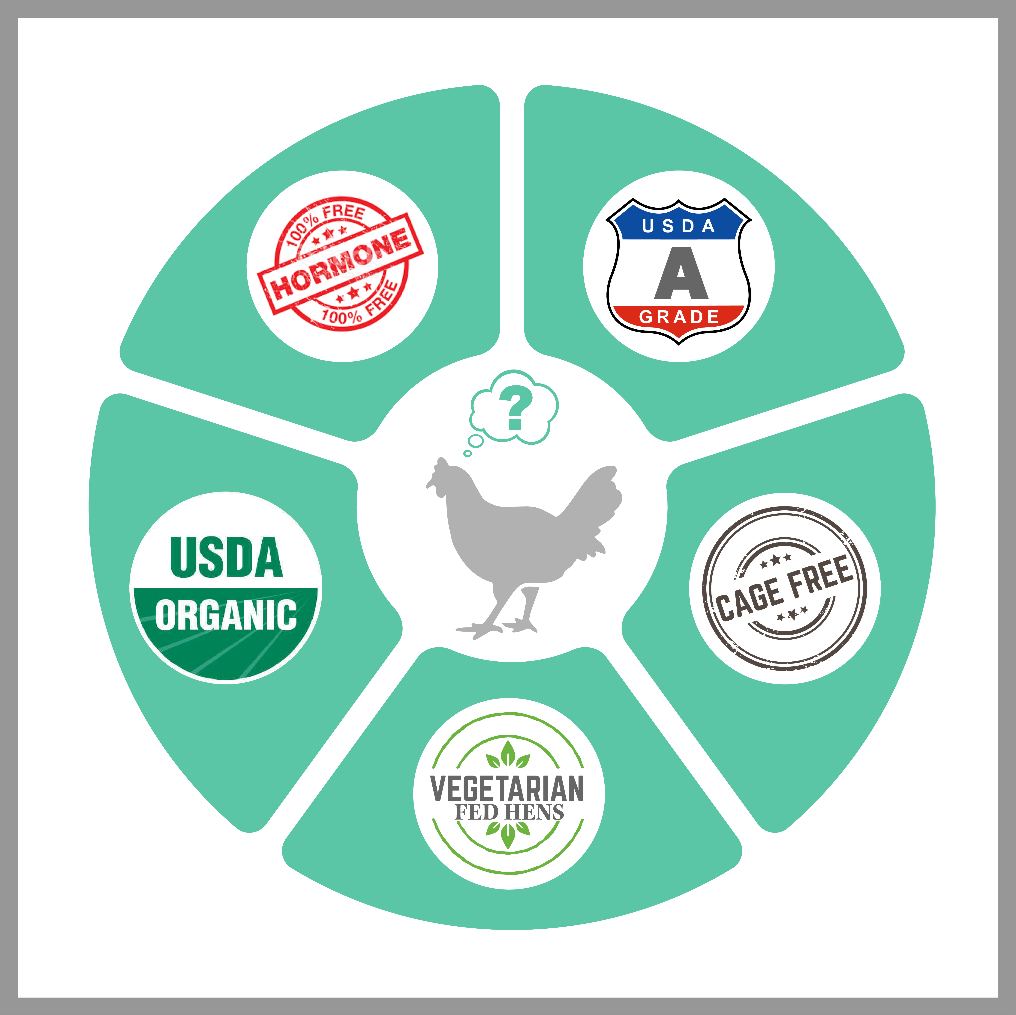What’s on a Label? Cracking the Egg Carton Code
Next time you purchase eggs, I encourage you to take a look around at the labels in front of you. Classic Grade A, organic, pasture-raised, omega 3-enriched, vegetarian, free-range, cage-free – these are among the many options we have today.
While we’re so fortunate to have an abundance of choices, many of us are left scratching our heads as to what some of these labels mean. Here are some resources to help you crack the egg carton code.
The North Carolina Egg Association unscrambles some of the terminology for us on this site, including:
USDA Certified Organic: Eggs produced by hens housed and fed according to the established United States Department of Agriculture (USDA) organic standards. Hens’ diets consist of ingredients grown to meet standards required for the organic program and they must have access to the outdoors.
Cage-Free: Eggs that come from hens raised indoors where they can roam vertically and horizontally and have unlimited access to fresh food and water.
Hormone-Free: It’s required by U.S. federal law that all hens are raised without supplemental hormones. The statement “no hormones” is considered a marketing term. All eggs are raised without added hormones, regardless of what it says on the package.
How often do you look at the end of an egg carton? There you’ll find some important information, too.
Typically, you’ll see “Sell by” or “Best by” dates. But there’s a trick to buying the freshest eggs, as my colleague and Missouri egg farmer Lorryn Bolte egg-splains in this video.
On one end of the carton, you’ll find a short series of numbers that starts with the letter “P.” That’s a code for the plant where the eggs were packed. (If you’re curious, you can find the plant location on this USDA website.)
You’ll also find a three-digit number that signifies the actual packing date. It’s based on the Julian calendar that starts with January 1 as 001 and ends with December 31 as 365. So, if you see the packing date of 033, that means the eggs were packed on February 2. (Check out the Egg Stamp Pocket Guide!) To buy the freshest eggs, look for the package date closest to the date you’re purchasing.
I hope I’ve helped clear up the egg carton conundrum so you can navigate the egg aisle with confidence and make the best choice for you and your family.
Have additional questions? I’d love to connect with you! Reach out at @AskDrDorman or by email at AskDrDorman@pahc.com.
